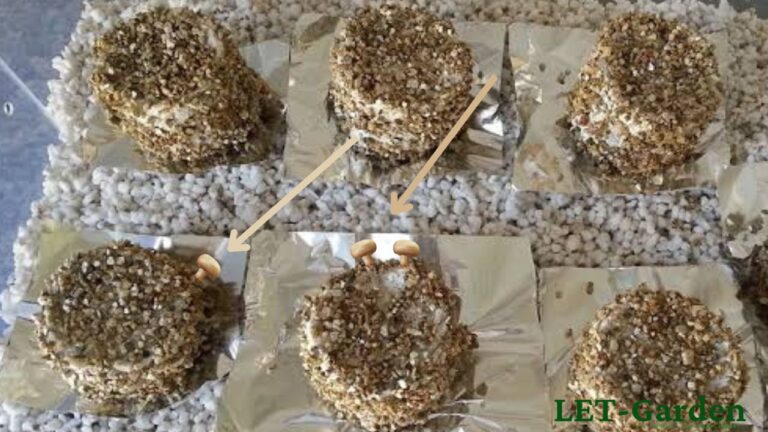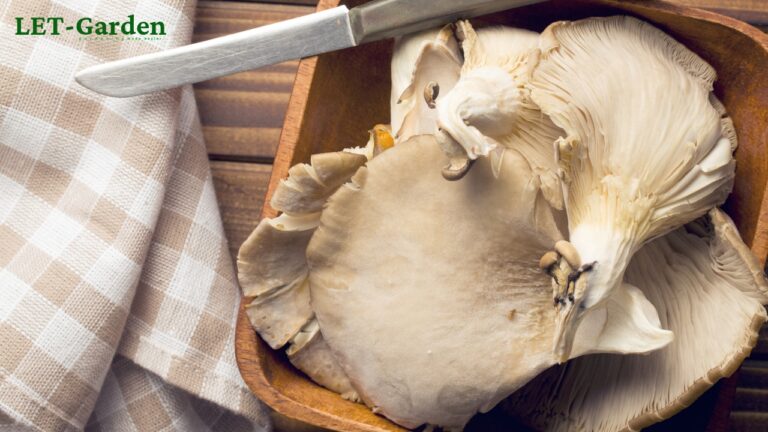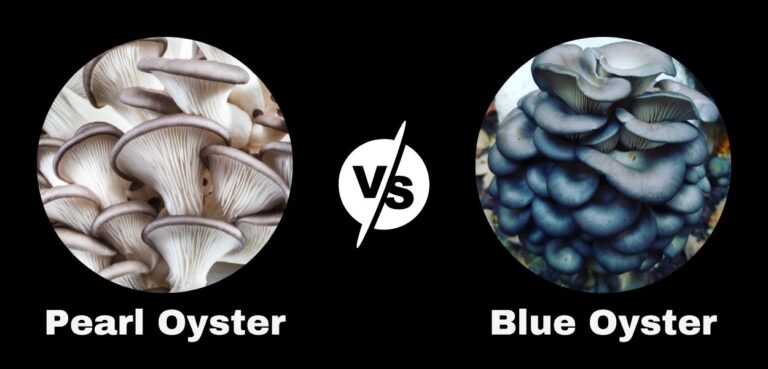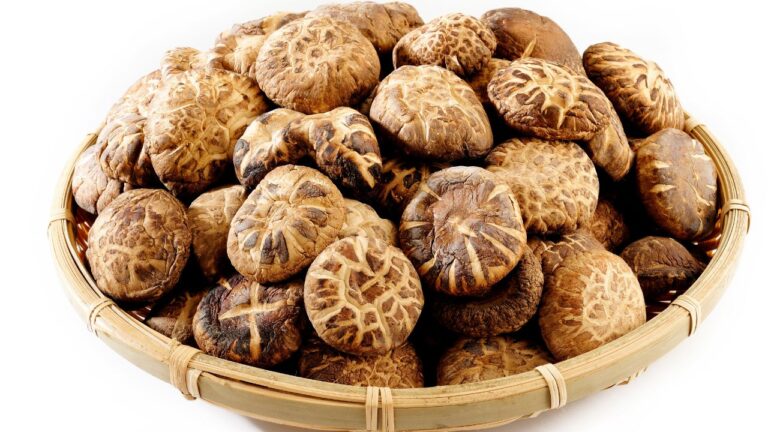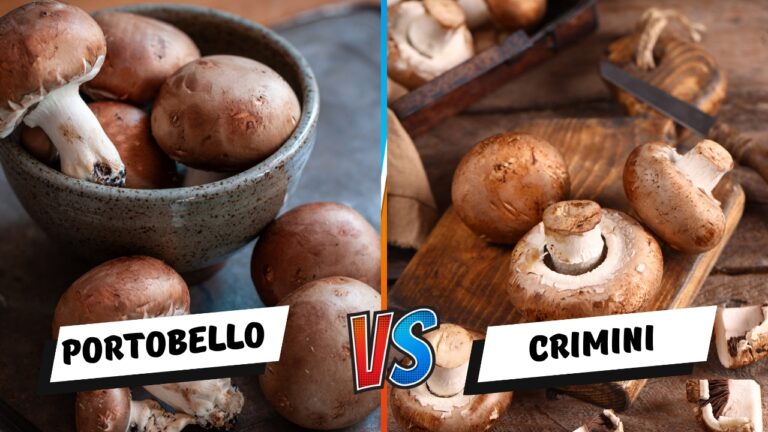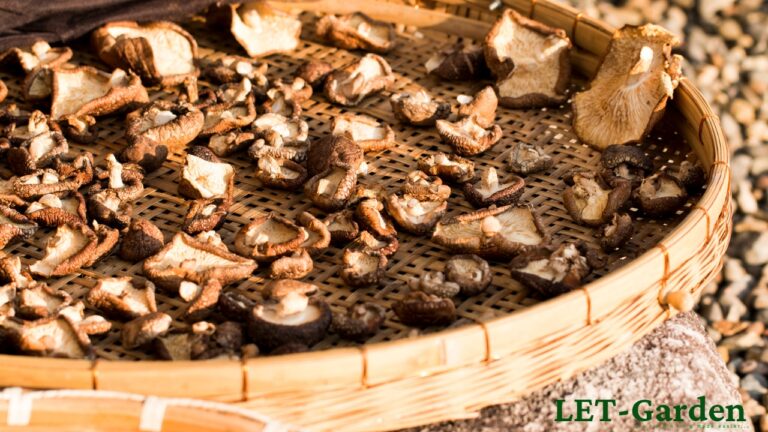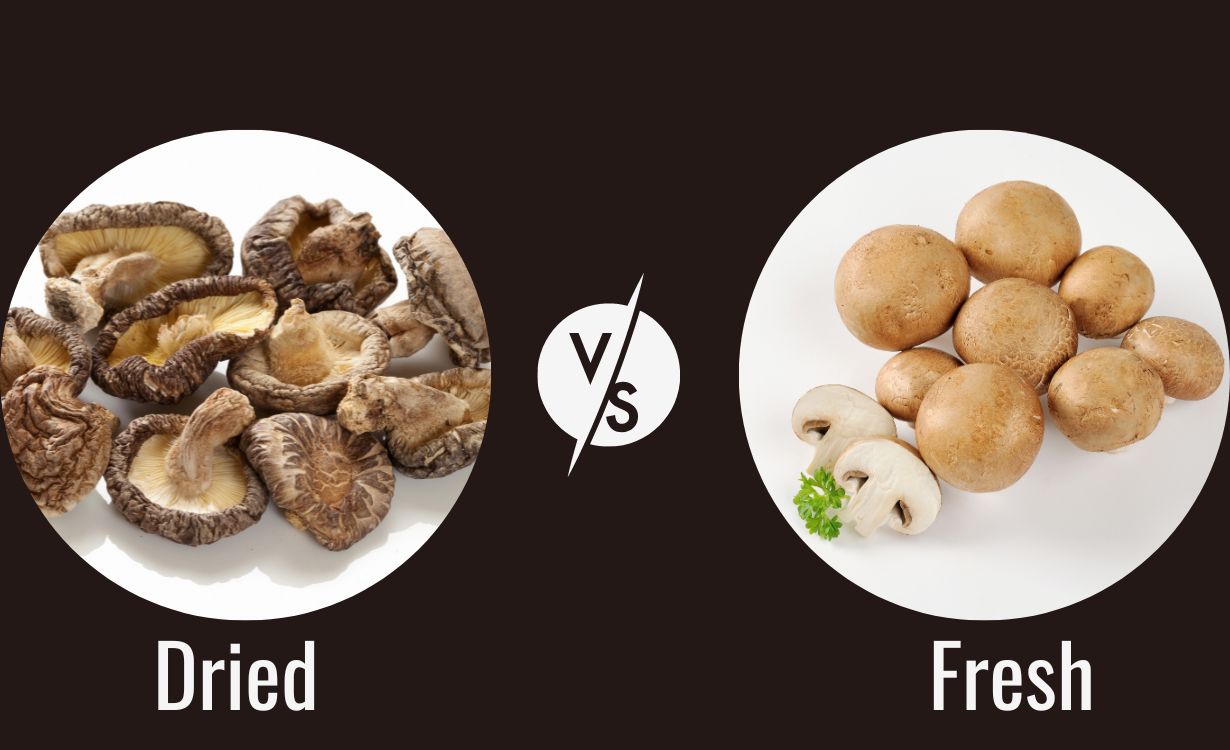
Mushrooms are a versatile ingredient used in various cuisines across the globe. However, when it comes to buying mushrooms, one must choose between fresh and dried ones. Both types have their own unique characteristics, which can make it challenging to decide which one to use. In this blog post, we will explore the differences between dried and fresh mushrooms. We will compare and contrast their nutritional value, taste, and cooking uses to help you make an informed decision the next time you are in the grocery store. So, whether you are a culinary expert or a beginner, this post is for you. Let’s dive in!
Dried vs Fresh Mushrooms Nutritional Differences

Mushrooms are a great addition to any diet as they offer numerous health benefits. They are low in calories, fat-free, cholesterol-free, and high in essential vitamins and minerals. However, there are some differences between the nutritional value of dried and fresh mushrooms.
Fresh Mushrooms:
Fresh mushrooms are rich in vitamins such as B vitamins, including thiamin, riboflavin, niacin, and pantothenic acid. They also contain vitamin D, which is essential for maintaining healthy bones and teeth. Additionally, fresh mushrooms are a good source of minerals such as potassium, copper, selenium, and phosphorus.
Dried Mushrooms:
Drying mushrooms intensifies their flavor and reduces their water content, resulting in a more concentrated nutrient profile. As a result, dried mushrooms contain more nutrients per gram than fresh mushrooms. For instance, dried mushrooms have higher concentrations of B vitamins and minerals such as copper, potassium, and iron.
However, one important nutrient that dried mushrooms lack is vitamin D. Vitamin D is a fat-soluble vitamin that is not found in significant amounts in plant-based foods. Fresh mushrooms exposed to ultraviolet light during processing are a good source of vitamin D.
Comparison
In terms of overall nutritional value, fresh mushrooms have a higher water content and lower nutrient concentration than dried mushrooms. However, fresh mushrooms contain vitamin D, which is an important nutrient that is not present in significant amounts in dried mushrooms. Dried mushrooms, on the other hand, are higher in certain minerals and B vitamins.
It is important to note that both fresh and dried mushrooms can be a healthy addition to your diet. By including both types of mushrooms in your diet, you can benefit from the unique nutritional properties of each.
In the next section, we’ll explore how the flavor and texture of dried and fresh mushrooms differ, and how this affects their use in cooking.
Flavor and Texture Differences | Dried vs Fresh Mushrooms
Mushrooms are known for their earthy flavor and delicate texture, which can vary depending on the type of mushroom. Fresh mushrooms are typically softer in texture and have a subtle flavor that can be enhanced with different cooking methods and seasonings.
When mushrooms are dried, their texture changes significantly. The drying process removes moisture, which can result in a chewy and slightly tough texture. However, the drying process also concentrates the flavor of mushrooms, resulting in a more intense and robust flavor.
It’s important to note that not all dried mushrooms are created equal. Some types of dried mushrooms, such as shiitake and porcini, are known for their meaty texture and strong umami flavor. Other varieties, like oyster mushrooms, can become very brittle when dried and may lose some of their delicate flavors.
When it comes to comparing the flavor and texture of dried and fresh mushrooms, it ultimately comes down to personal preference and the recipe you’re making. Some people prefer the subtler taste and softer texture of fresh mushrooms, while others prefer the concentrated flavor and chewy texture of dried mushrooms.
It’s also worth noting that dried mushrooms can be rehydrated before use, which can help soften their texture and restore some of their moisture. So, if you’re using dried mushrooms in a recipe that calls for them to be cooked for an extended period of time, such as in a soup or stew, the texture difference may not be as noticeable.
However, the flavor and texture differences between dried and fresh mushrooms are significant. While fresh mushrooms have a delicate texture and subtle flavor, dried mushrooms are more concentrated in flavor and can have a chewy texture. The choice between the two ultimately depends on personal preference and the specific recipe being made.
Cooking Uses of Dried and Fresh Mushrooms
Mushrooms are a versatile ingredient that can be used in many different ways in cooking. Whether fresh or dried, they can add flavor, texture, and nutrients to a wide range of dishes. In this section, we will explore the various ways fresh and dried mushrooms can be used in cooking.
Fresh Mushroom Cooking Uses
Fresh mushrooms are delicate and have a mild flavor, which makes them a popular ingredient in many dishes. Here are some common ways fresh mushrooms are used in cooking:
- Sautéing: Fresh mushrooms can be sautéed in butter or oil and used as a topping for pasta, pizza, or risotto.
- Grilling: Grilled mushrooms are a delicious addition to burgers, sandwiches, or salads.
- Roasting: Roasted mushrooms can be used as a side dish, mixed into grain bowls, or added to omelets.
Dried Mushroom Cooking Uses
Dried mushrooms are a great pantry staple because they have a long shelf life and can be rehydrated for use in a variety of dishes. Here are some common ways dried mushrooms are used in cooking:
- Broths and Stocks: Dried mushrooms are often used to add depth of flavor to broths and stocks.
- Soups and Stews: Rehydrated mushrooms can be added to soups and stews to add flavor and texture.
- Sauces: Dried mushrooms can be ground into a powder and added to sauces and gravies for extra umami flavor.
Comparing the Cooking Uses of Dried and Fresh Mushrooms
While both dried and fresh mushrooms can be used in many different ways in cooking, they each have their own unique benefits. Here are some of the differences between the cooking uses of dried and fresh mushrooms:
- Shelf Life: Dried mushrooms have a much longer shelf life than fresh mushrooms and can be stored for months in a cool, dry place.
- The intensity of Flavor: Dried mushrooms have a more concentrated flavor than fresh mushrooms and can add a deeper, richer flavor to dishes.
- Texture: Fresh mushrooms have a delicate texture that can be lost when dried. Rehydrated mushrooms may not have the same texture as fresh mushrooms.
Overall, whether you choose to use fresh or dried mushrooms in your cooking depends on personal preference and the dish being prepared. Both types of mushrooms offer unique benefits and can be used in a variety of ways to add flavor and nutrients to your meals.
Choosing Between Dried and Fresh Mushrooms
When it comes to choosing between dried and fresh mushrooms, there are several factors to consider. Depending on the dish you are preparing, personal preference, and availability, one type of mushroom may be more suitable than the other.
1. Consider the Dish
The type of dish you are preparing is an important factor when it comes to choosing between dried and fresh mushrooms. For dishes that require a delicate texture and mild flavors, such as salads or stir-fries, fresh mushrooms are the best option. On the other hand, for dishes that require a more concentrated and earthy flavor, such as stews, soups, or sauces, dried mushrooms are the better choice. This is because the drying process intensifies the flavor of mushrooms and makes them more suitable for dishes with stronger flavors.
2. Personal Preference
Your personal preference is another factor to consider when choosing between dried and fresh mushrooms. Some people prefer the chewy and intense flavor of dried mushrooms, while others prefer the delicate and subtle flavor of fresh mushrooms. If you are not sure which type of mushroom you prefer, it’s a good idea to try both and see which one you like better.
3. Storage and Cost
Another important factor to consider when choosing between dried and fresh mushrooms is storage and cost. Fresh mushrooms have a shorter shelf life and need to be consumed within a few days of purchase, while dried mushrooms can be stored for several months in a cool, dry place. This makes dried mushrooms a more convenient option if you don’t plan to use them right away. In terms of cost, dried mushrooms are often more expensive than fresh mushrooms, but they can be more cost-effective in the long run since they have a longer shelf life and can be used in smaller quantities.
Tips on Preparing and Storing Mushrooms
Regardless of whether you choose dried or fresh mushrooms, there are some tips to keep in mind when preparing and storing them:
- To clean fresh mushrooms, wipe them with a damp cloth or rinse them quickly under cold water. Avoid soaking them in water as they can absorb too much moisture.
- For dried mushrooms, rehydrate them by soaking them in warm water for 20-30 minutes before using them in a dish.
- Store fresh mushrooms in the refrigerator in a paper bag or wrapped in a damp paper towel to keep them fresh for longer.
- Store dried mushrooms in an airtight container in a cool, dry place away from direct sunlight.
Moreover, choosing between dried and fresh mushrooms depends on the dish you are preparing, your personal preference, and storage and cost considerations. Experiment with both types to discover which one you prefer, and follow these tips to ensure that your mushrooms are properly prepared and stored.
FAQs on Mushrooms Fresh vs Dried
Are dried mushrooms as good as fresh?
Yes, dried mushrooms are as good as fresh, depending on how they’re used. Some mushrooms, like shiitake, actually concentrate their flavor when dried, and once reconstituted have an even meatier texture than fresh mushrooms. Dried morels are almost interchangeable with fresh morels.
Do dried mushrooms taste the same as fresh?
The flavor of a dried mushroom is slightly more concentrated than the fresh kind. It’s what makes them spectacular for adding depth to broths, stews, and soups. Morels, on the other hand, can be dustier and grittier when dry.
Do dried mushrooms need to be cooked?
Yes, you will need to soak the mushrooms in hot water for about 20-30 minutes until they are plump and tender. After that, the mushrooms need to be cooked. You can sauté them or simmer them in a liquid.
What is the best way to use dried mushrooms?
Dried mushrooms do best in longer-cooked dishes, though it’s not a hard-and-fast rule. Even rehydrated, they can remain rubbery in quicker-cooking situations, such as stir-fries. Instead, think about soups, stews, and braises, where they can add rich umami flavor and depth.
Can you add dried mushrooms directly to soup?
If you’re planning to use them in a broth or soup, just add the dried mushrooms straight into the pot. Your mushrooms will take on flavors from the broth and will in turn infuse mushroom flavor into the soup. They’re also great for making a simple ramen or mushroom gravy.
Finally on Fresh vs Dried Mushrooms
In conclusion, when it comes to dried vs fresh mushrooms, there are some important differences to consider. Fresh mushrooms have a delicate flavor and texture and are great for quick-cooking dishes like salads and omelets. Dried mushrooms, on the other hand, are more concentrated in flavor and are perfect for adding depth to longer-cooked dishes like stews and soups.
In terms of nutrition, both fresh and dried mushrooms have their own unique benefits. Fresh mushrooms are a good source of vitamins, minerals, and antioxidants, while dried mushrooms are a good source of protein and fiber.
However, the type of mushroom you choose to use will depend on your personal preference and the recipe you’re making. If you’re making a quick stir-fry or salad, fresh mushrooms may be the way to go. But if you’re making a hearty soup or stew, dried mushrooms can add a rich and savory depth of flavor.
So why not try out a new recipe that uses your favorite type of mushroom? Whether you choose dried or fresh, mushrooms are a delicious and nutritious addition to any meal.

Hi, I’m Miles, the lead team member behind Gardeem.com. Besides being a passionate grower and writer, I’m a husband, father and grandfather to three! I started Gardeem in 2017 to provide simple and reliable gardening advice to everyone, regardless of their ability levels.

